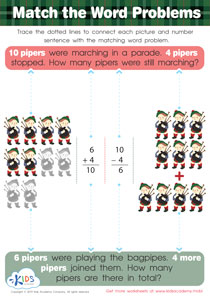Counting skills Normal Addition Worksheets for 4-Year-Olds
7 filtered results
-
From - To
Explore our "Counting Skills Normal Addition Worksheets for 4-Year-Olds," designed to make early math fun and engaging! These worksheets introduce young learners to fundamental addition concepts through colorful visuals and interactive exercises. Each page focuses on counting skills, helping children recognize numbers and develop their ability to combine them. Ideal for preschool educators and parents, our worksheets promote independent learning and encourage kids to practice basic addition in a stress-free environment. Foster your child's confidence in math with these thoughtfully crafted resources that lay the groundwork for future mathematical success. Start their learning journey today!
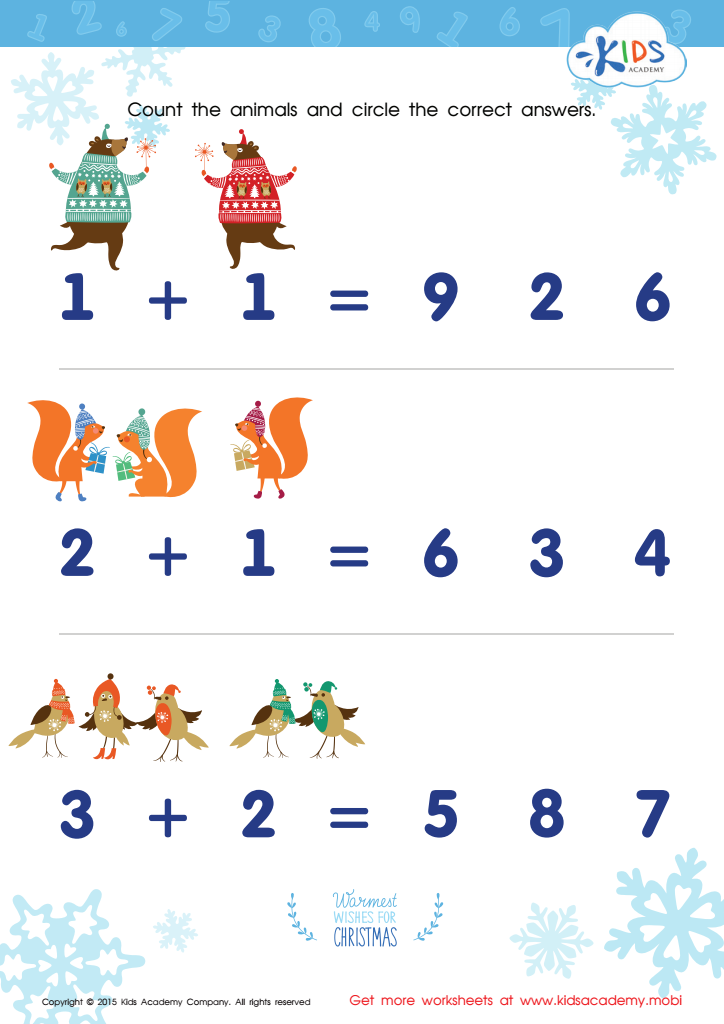

Count Funny Animals Worksheet


Adding Flower Petals Worksheet
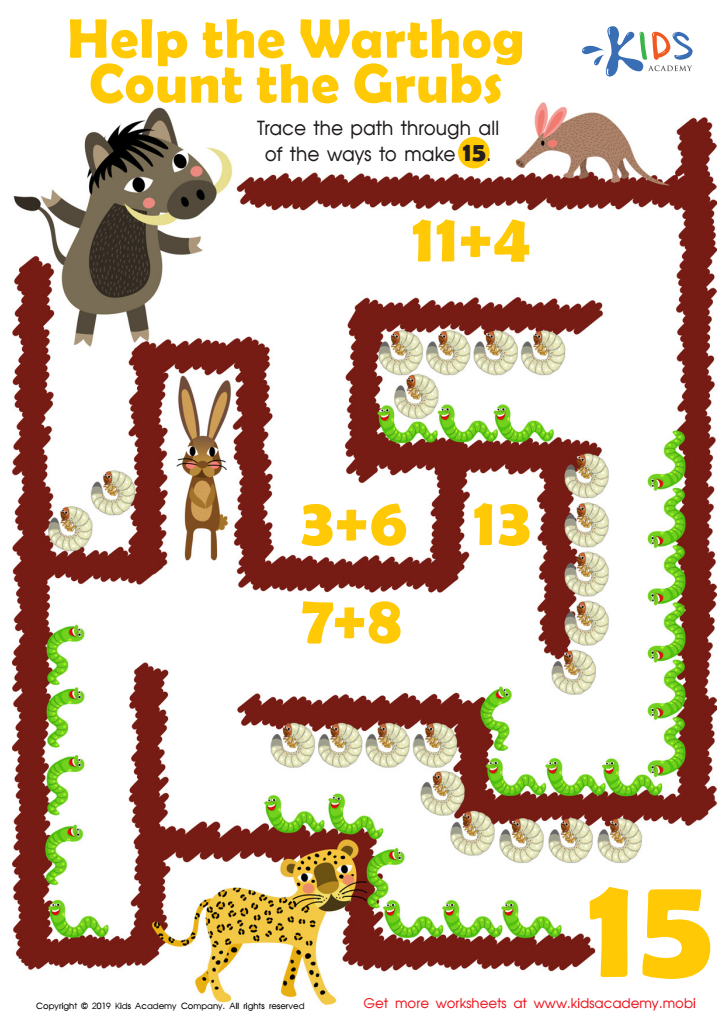

Help the Warthog Count the Grubs Worksheet
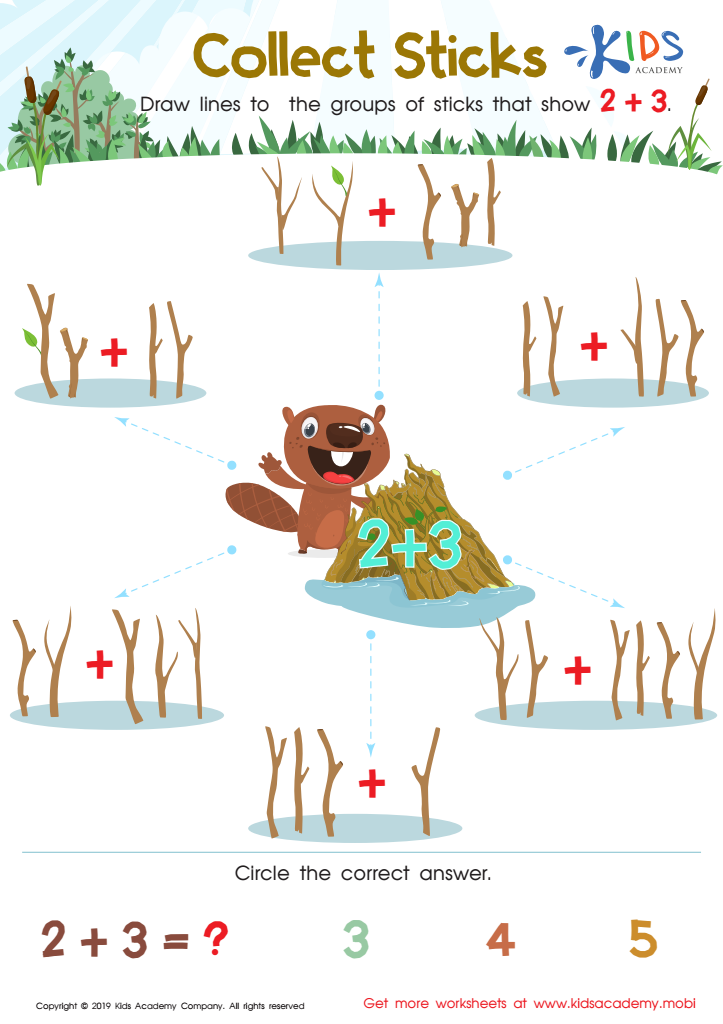

Collect Sticks Worksheet
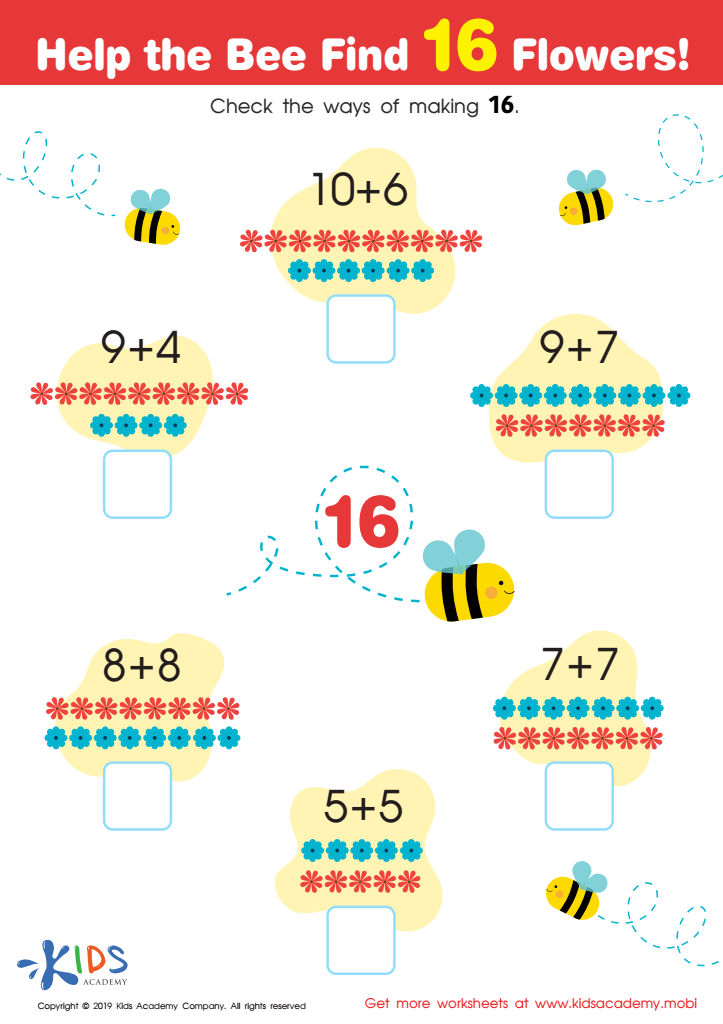

Help the Bee Find 16 Flowers Worksheet
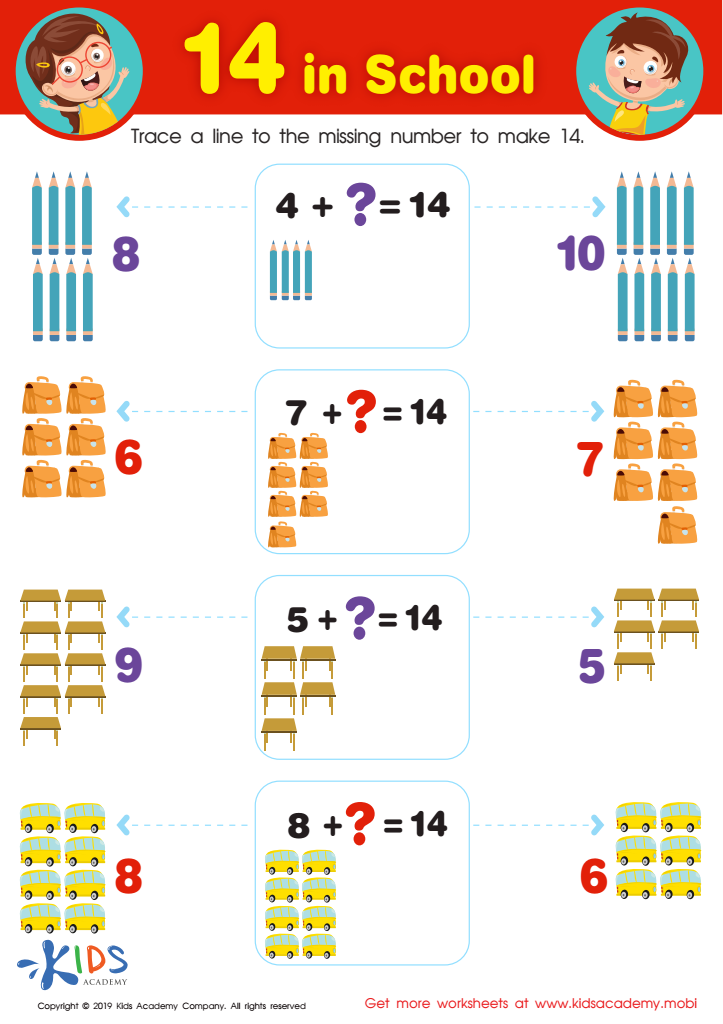

14 in School Worksheet
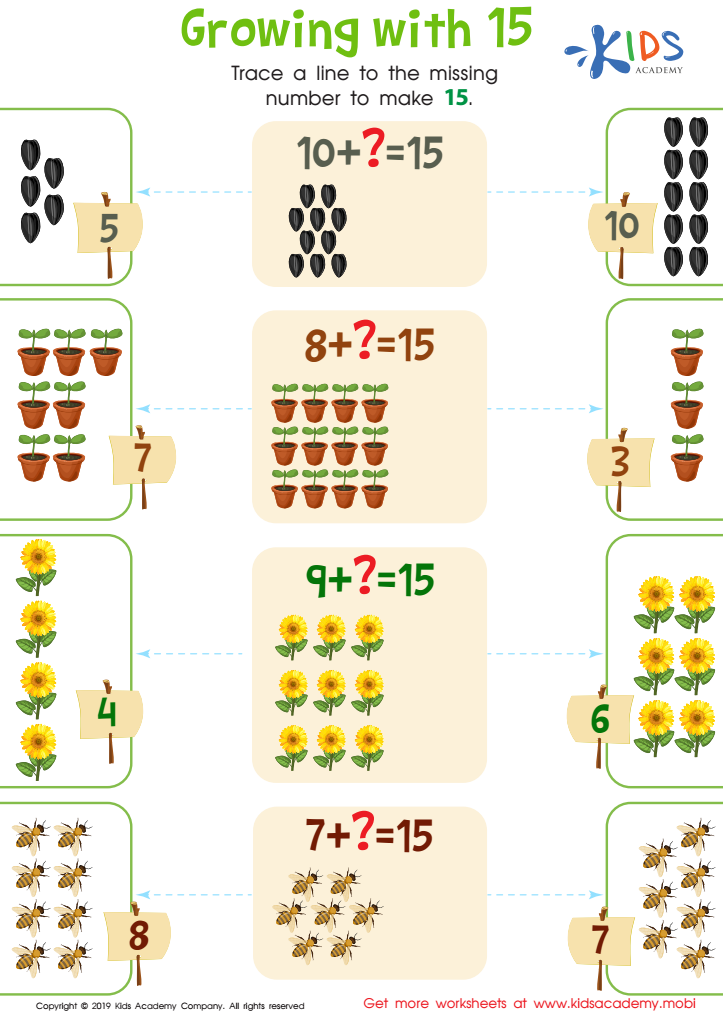

Growing with 15 Worksheet
Counting skills and basic addition are foundational elements of early childhood math development, making them critical for parents and teachers working with 4-year-olds. Mastering these skills not only helps children understand numbers but also fosters problem-solving abilities, logical thinking, and a positive attitude toward mathematics.
By learning to count and perform simple additions, children begin to grasp the concept of quantity and how different numbers can relate to one another. Early exposure to these skills supports cognitive development and lays the groundwork for more complex math concepts they will encounter later in school.
Moreover, counting and addition are ubiquitous in everyday life. Parents and teachers can use these skills to engage children in playful and practical activities, like counting toys during playtime or adding up snacks, which makes learning meaningful and enjoyable. This approach promotes active learning and encourages a natural curiosity about the world.
Additionally, early math skills have a proven link to future academic success. Children who develop counting and addition skills early on are more likely to excel in math during their schooling. Therefore, nurturing these skills is essential for overall educational growth, boosting confidence, and instilling a lifelong love for learning.

 Assign to My Students
Assign to My Students









